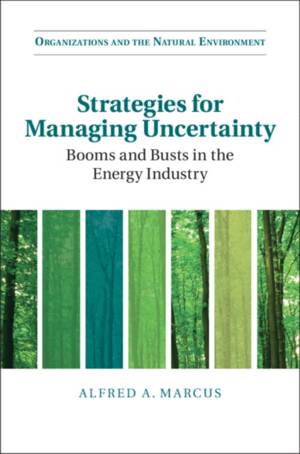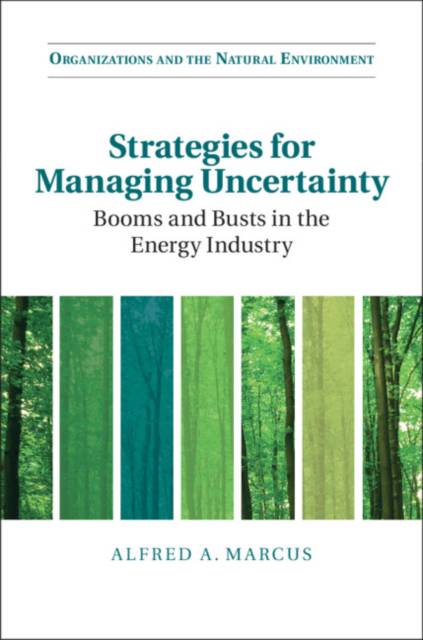
- Afhalen na 1 uur in een winkel met voorraad
- Gratis thuislevering in België vanaf € 30
- Ruim aanbod met 7 miljoen producten
- Afhalen na 1 uur in een winkel met voorraad
- Gratis thuislevering in België vanaf € 30
- Ruim aanbod met 7 miljoen producten
Zoeken
€ 85,45
+ 170 punten
Omschrijving
All organizations must cope with future uncertainties. These uncertainties affect the strategic choices they make. They must commit scarce organizational resources to future outcomes which they have little assurance will come into being. Marcus explores how decision makers in the energy industry made choices in the face of such uncertainties, specifically examining two major uncertainties they confronted in the 2012-18 period - price volatility and climate change. Marcus tells the story of how different companies in the integrated oil and natural gas sector and in the motor vehicle sector responded to these uncertainties. In the face of these challenges, companies in the energy industry hedged their bets by staking out paradoxical or contrasting positions. On the one hand, they focused on capturing as much gain as they could from the world's current dependence on fossil fuels and on the other hand they made preparations for a future in which fossil fuels might not be the world's dominant energy source.
Specificaties
Betrokkenen
- Auteur(s):
- Uitgeverij:
Inhoud
- Aantal bladzijden:
- 564
- Taal:
- Engels
- Reeks:
Eigenschappen
- Productcode (EAN):
- 9781316641682
- Verschijningsdatum:
- 28/03/2019
- Uitvoering:
- Paperback
- Formaat:
- Trade paperback (VS)
- Afmetingen:
- 218 mm x 229 mm
- Gewicht:
- 816 g

Alleen bij Standaard Boekhandel
+ 170 punten op je klantenkaart van Standaard Boekhandel
Beoordelingen
We publiceren alleen reviews die voldoen aan de voorwaarden voor reviews. Bekijk onze voorwaarden voor reviews.







